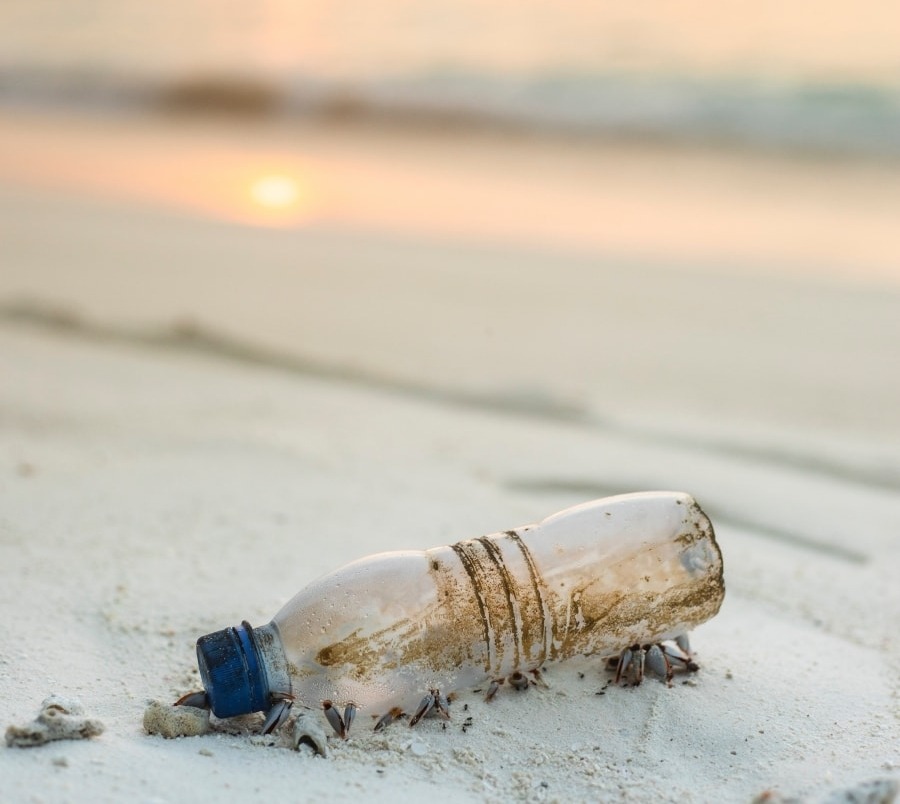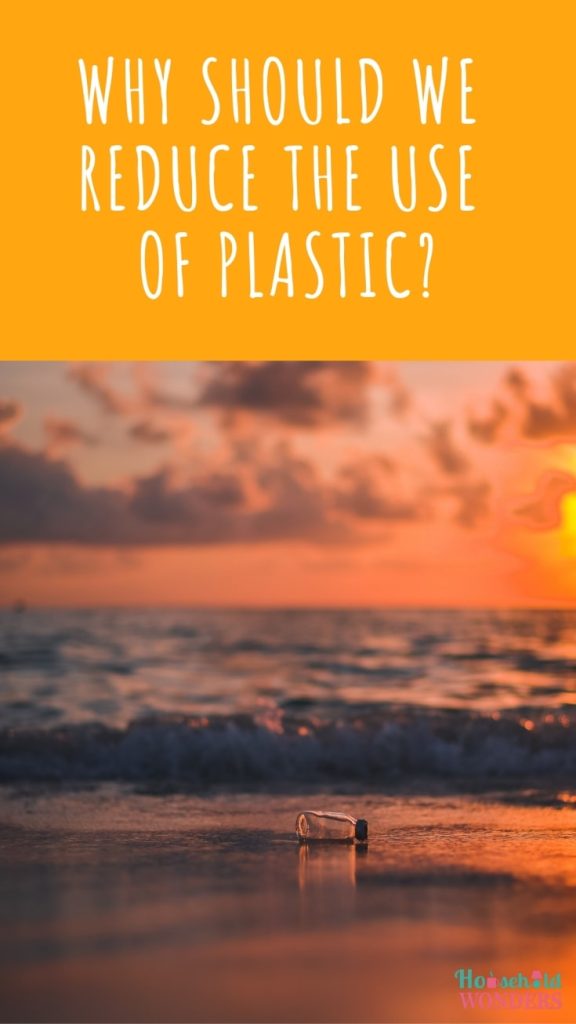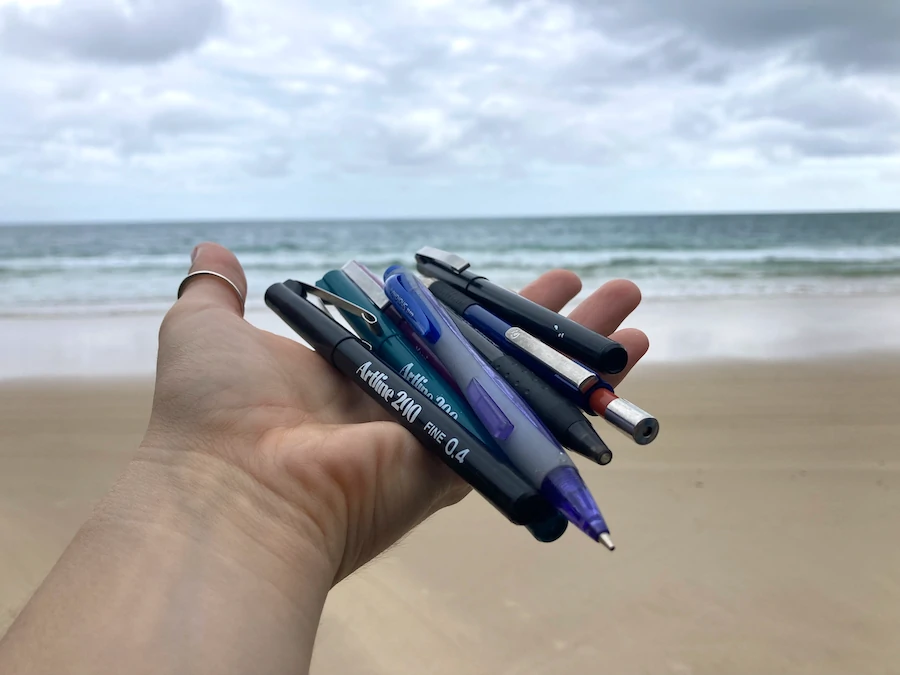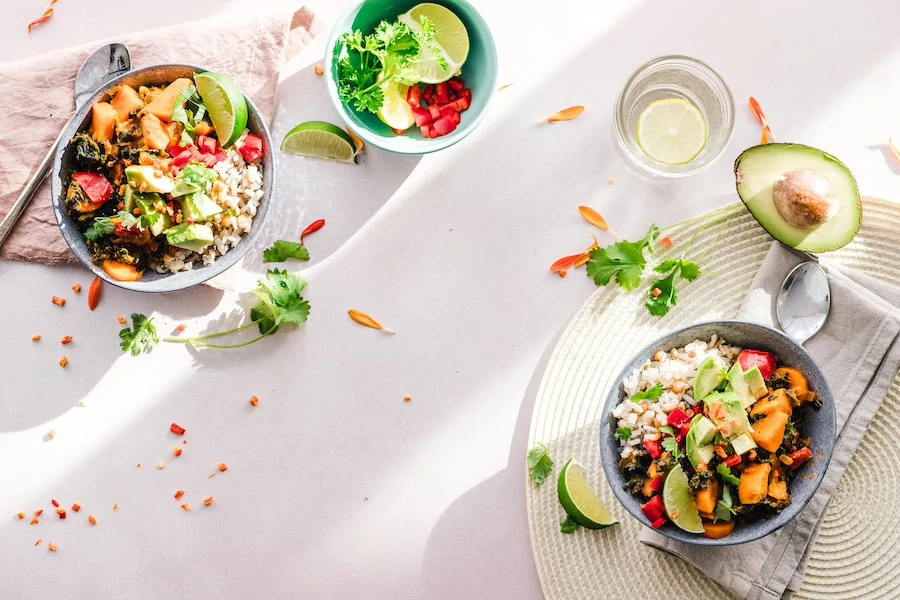
Before I started migrating my home and kitchen items away from plastic and more toward renewable, eco-friendly materials, like bamboo, hemp, and 100% recycled products, I wanted to find out what the benefits were to reduce the use of plastic. I wasn’t interested in getting caught up in a movement that didn’t truly help save the environment, so I did a bit of investigating.
So why should we reduce the use of plastic? Plastic is one of the main materials found in landfills and can take up to a thousand years to biodegrade, leading to a more polluted and toxic environment. Even when properly recycled, the amount of energy and fossil fuels to create plastic is unsustainable and harmful to our planet.
There are, of course, many other reasons why we should reduce the use of plastic in our everyday lives, but these are the main reasons. But that doesn’t mean there’s not more to learn, and the more we learn about this issue, the better chance our planet has to survive.
Reducing Our Use of Plastic
Whenever I go shopping for groceries, home and kitchen products, or anything my family or I need on any given day, the most commonly used material I see throughout stores is plastic. Nowadays, plastic is king in the retail world, and over the years this pattern has begun to be seriously questioned on whether or not this should be the case.
The reason we should question this is because plastic has the following unfortunate qualities:
- 50% of plastic is used only once, which means it’s not reused or recycled.
- Plastic can take up to a thousand years to biodegrade.
- Each year, we use enough plastic to circle the earth four times.
- Plastic requires the use of fossil fuels (i.e., oil) to manufacture, which means more carbon immissions.
- Plastic takes 2000 times more energy to manufacture compared to producing tap water.
- Most pollution in our landfills, oceans, seas, and rivers is plastic.
These are all very good reasons not to ever use plastic again, but at the very least reduce our use of plastic. The issue is that it’s a very wasteful, energy-inefficient resource that’s normally only used once in its lifetime before becoming another pollutant. It also increases the effect of global warming on our planet, which we all know has detrimental effects on the future of our icecaps, waterways, soil, and families.
Studies show that over 8 million tons of plastic are dumped into our oceans worldwide every year. This has an enormous negative effect on the animals that call the oceans their home and also on the quality of water people drink every day. Every time we use plastic, we’re attacking the very essence of what makes our planet livable; for people and animals. And when you consider that over 70% of the earth is covered in water, that’s not good at all.
The amount of toxins that creep into our waterways contributes to the lack of clean, fresh drinking water our generation and those before us take for granted. As many of us may know, there are plenty of countries throughout the world where you just can’t drink the tap water. Why? Because of massive pollution mainly caused by the overuse of plastic.
Another major ill-effect that the use of plastic has on our planet is the reduction of soil quality due to the growing number of landfills. As toxic landfills become more prevalent, we’ll have fewer places to plant crops to produce organic, high-quality food. A very unfortunate outcome could be that we solely depend on GMO plants to combat the harsh soil so that we can grow food. I don’t know about you, but that doesn’t sound like a future I want my children and grandchildren to live in.
So what happens when the quality of our water and soil drop so much that it becomes too difficult to drink clean water and eat healthy food? Well, that’s a question we all need to answer together so we can start moving toward a more sustainable and habitable planet. In the meantime, reducing the use of the largest pollution contributor on the planet (plastic) seems like a good start.
Easy Ways to Reduce the Use of Plastic
It’s for the benefit of everyone on planet earth that we as a people start to rein in on our use of plastic. Over the years, more and more people have awakened to the fact that we need to take action to reduce the use of plastic in our everyday lives, and this can be seen in our stores and homes.
Probably the best start to reduce our use of plastic is to stop using plastic bags when shopping. When you think about it, those plastic bags either end up under your sink to be used as garbage bags or just get tossed into the garbage (which is probably also a plastic bag). Instead of using a plastic bag when shopping, opt for the paper bag which can be properly recycled. Better yet, buy or make yourself a reusable bag that’s suitable for all your shopping needs.
If you have a bunch of plastic bags or can’t avoid using them in certain cases, there are a number of creative ways of reusing your plastic bags. Just another way to keep our planet clean and healthy!
Another great way to reduce the use of plastic is to opt-out of using plastic straws. Nowadays you can get metal, paper, bamboo, and hemp straws that can often be reused and are always recyclable. As a matter of fact, I make sure I have a set of bamboo straws in the house whenever we need them for parties or small get-togethers. They look great and they help our environment.
It’s also a great plan to start using glass water bottles as opposed to plastic ones. This way you can not only help the environment but also you can help reduce the chance of ingesting toxic, plastic-based chemicals, like BPA. As a matter of fact, this is another reason to stop using plastic straws!
One of the biggest issues today is the use of microbeads in facial cleansers. The issue with these products is those beads are truly one-time use plastic products and they are virtually never recycled since they go right down the drain after using them. Actually, this is probably one of the more growing concerns out there in regards to the overuse of plastic and lack of recycling.
Reduce, Reuse, and Recycle the Plastic You Have
Now you might be wondering what to do with all the plastic products you have now. While you can definitely recycle them, there might be a better use of them in your everyday life that could not only help the environment but save you some money.
A good first step is to take an inventory of all the home and kitchen products you own to see how many of them are made of plastic. I did this and realized over half of our home was made of plastic, especially the items used in the kitchen. This is a good practice because it gives you an idea of your overall use of plastic so you know what you can replace with more renewable, eco-friendly products.
One of the most common plastic products I found in my home were… my kids’ toys! Almost everything we’ve purchased over the years is made of plastic, which was a big shocker for me. So from that day forward, we decided to always donate plastic (and non-plastic) toys to charity from time to time, so they can be reused by those that need them most. A win for our local community and the global environment!
We also decided to take a trip to our local recycling plant as a little field trip so we could learn about the plastic recycling process. This really opened our eyes to how much plastic ends up as waste versus being recycled, which encouraged us even more to reduce our use of plastic. Immediately after that field trip, we bought a recycling bin for our house and signed up for a weekly pick up service.
The great part about reusing existing plastic products is that it delays the fact it may end up in a landfill and increases the number of uses our plastic products have. Even small efforts can have a huge effect on our planet, and if this encourages others to do the same, then we’re happy knowing we’ve helped.
Related Questions
What do the 3 Rs stand for? The 3 Rs stand for reduce, reuse, and recycle. Reduce means to lower the use of plastic, reuse means to increase the number of times you use your existing plastic products, and recycle means to properly dispose of plastic products.
Why should we reuse plastic? Plastic should be recycled at the end of its lifetime, however, until that point, it’s best to use it as many times as possible to get the most utility out of it. That way it benefits our world as much as possible while it still functions properly before being disposed of.




